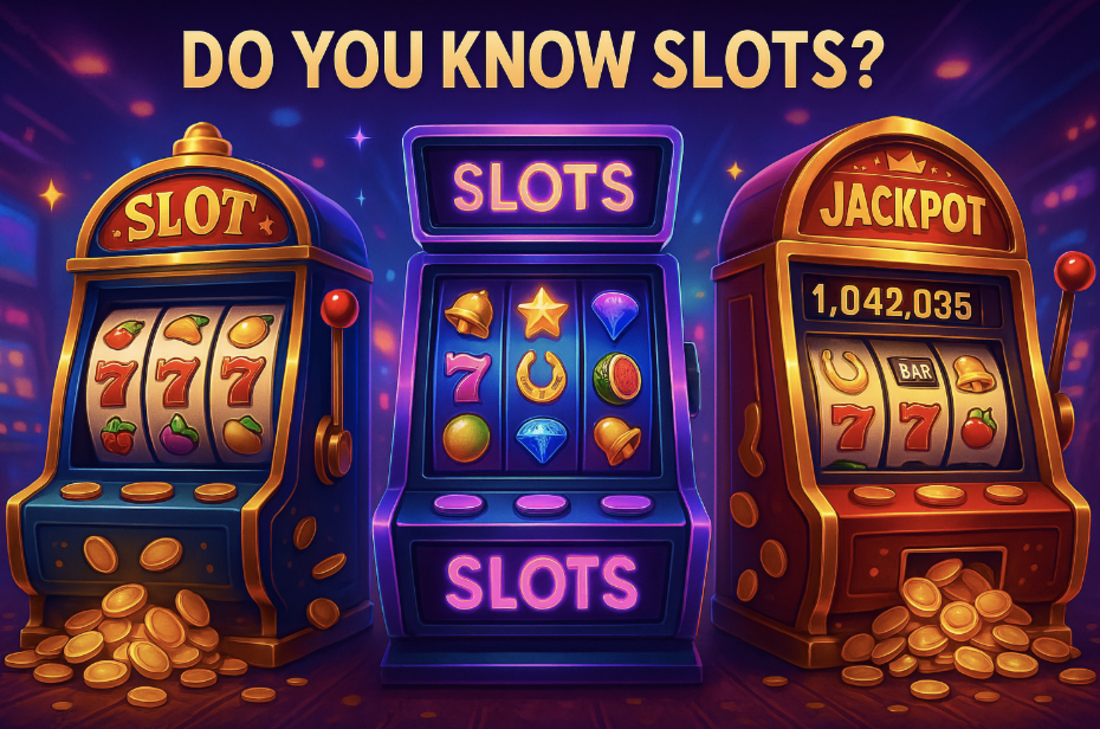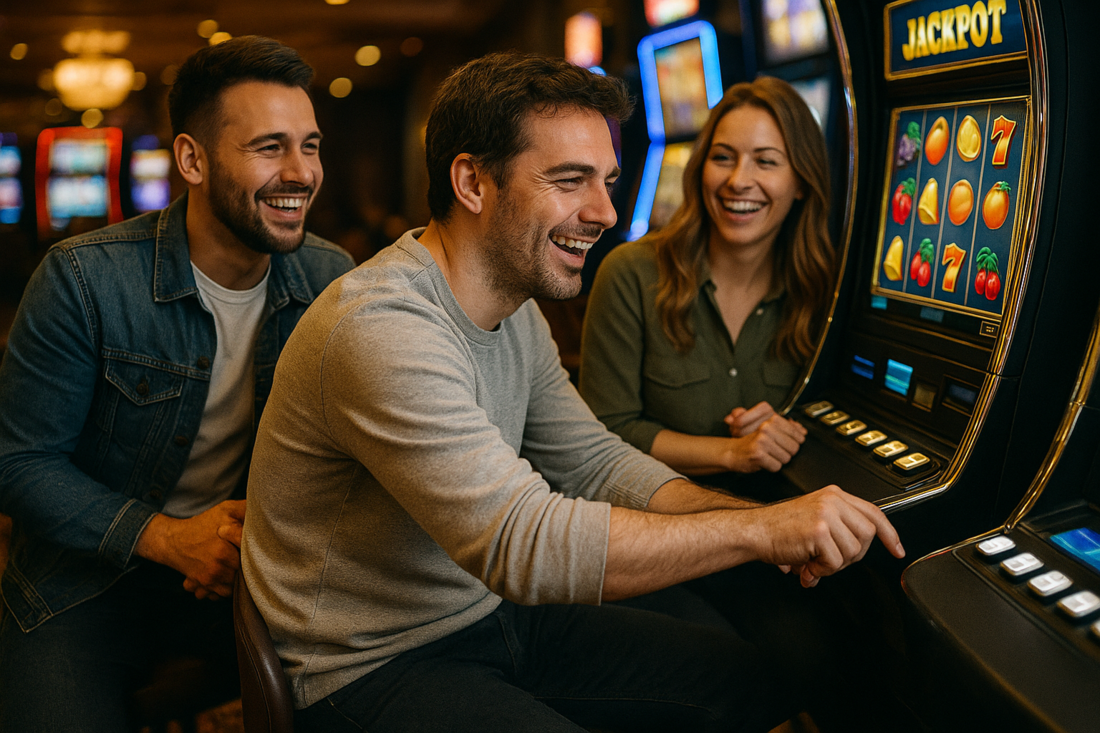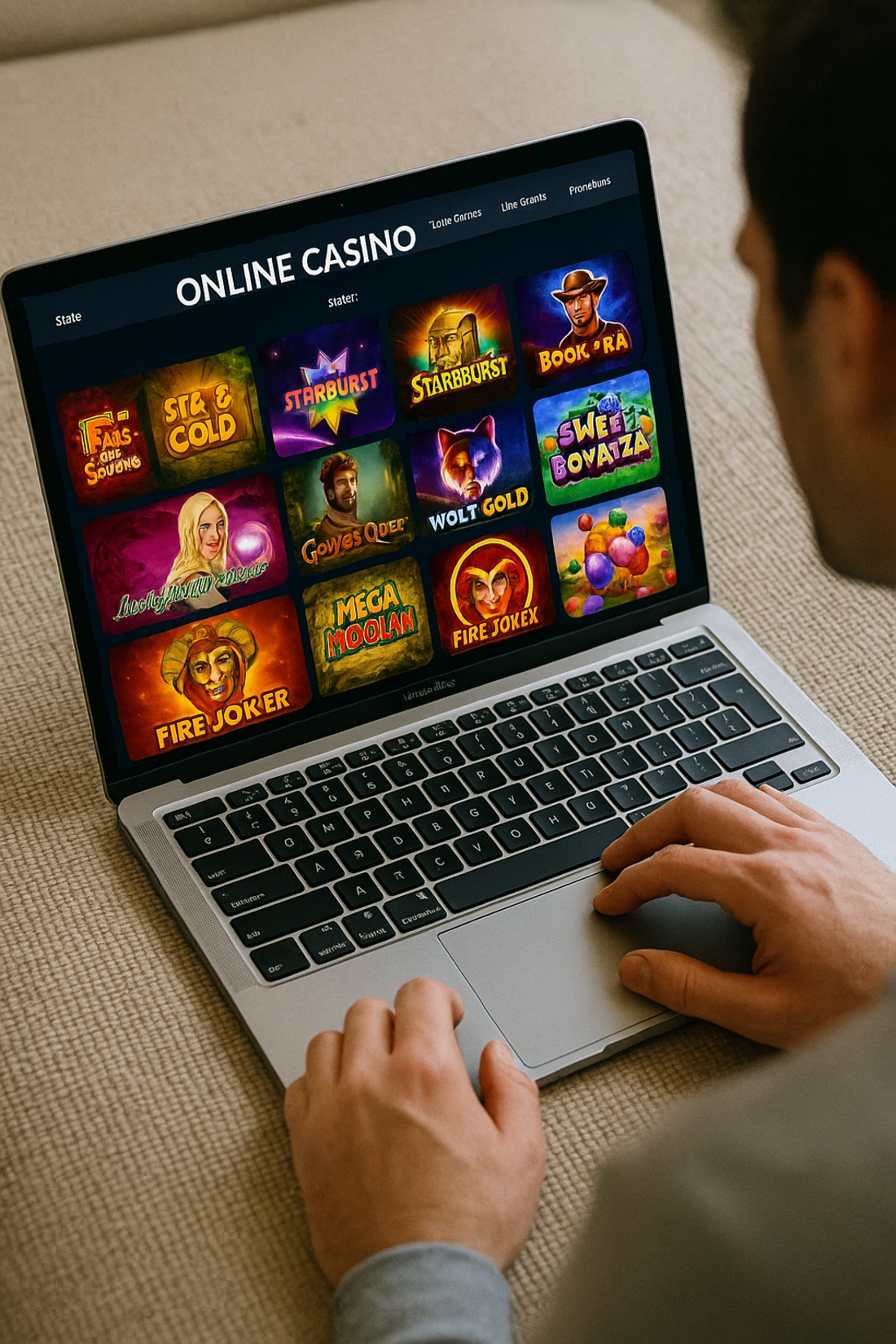Slot machines may look similar at first glance, but the way they work can be very different. For new players, the difference between floor slot machines and slot machines isn’t always obvious — especially when encountering both for the first time. This article breaks down the key differences between land-based and online slots, helping you choose the format that fits your playing style.

Floor slots vs. online slots
Slot machines fall into two fundamentally different formats: physical and digital. Floor slots are physical machines installed in land-based casinos. They have a cabinet, screen, mechanical or touch controls, and a built-in random number generator. Games run locally on the device, the interface is fixed, and player interaction is limited to the machine itself. These slots operate independently and require the player’s physical presence.
Online slots exist only in digital form. They are software-based games hosted on remote servers. Players access them through a browser or app, with an interface that adapts to different screen sizes and devices. These games use cloud-based RNGs and offer a wide range of themes, visuals, features, and bonuses. This format gives more flexibility: players can switch between titles, save progress, and use bonus offers — all without being tied to a physical location.
While the core mechanics — spinning reels and calculating payouts — remain similar, the two formats differ in technology, accessibility, control, and overall player experience. The rest of this article breaks down those differences across key categories.
Atmosphere and immersion
Slot format affects more than just mechanics — it also shapes the environment where gameplay happens. Floor and online slots offer different levels of engagement: one relies on surroundings and sensory input, the other on convenience and isolation. This contrast directly impacts how the experience feels to the player.
Sensory experience and setting
Floor slots are placed in busy, high-traffic areas. Players are exposed to background noise from other machines, flashing lights, and constant movement around them. This is by design — the environment is meant to keep attention engaged through external stimuli. The machines have fixed layouts, and their design is aligned with the overall casino setup.
Online slots operate in a neutral or personally chosen environment. Everything depends on the device — a smartphone, tablet, or desktop. There’s no crowd, noise, or visual pressure. The player decides whether to turn on sound, play in daylight or in the dark. It’s a more controlled setting, but often less immersive.
Social aspect

In a casino, the social element is built into the experience. Players see others win or lose, chat casually, and interact with staff. Loyalty programs, on-site rewards, and real-time engagement are all tied to physical presence. Even without direct interaction, players feel part of a shared space.
Online play is mostly solitary. Some platforms offer tournaments, leaderboards, or chat features, but these are limited in scope. Interaction rarely affects the game itself. The social layer exists, but it’s optional — not a core part of how the game is experienced.
Convenience and efficiency
Access conditions and session pace are key factors when choosing between formats. Online play offers freedom — no need to follow a schedule or travel anywhere. Offline, by contrast, requires more time and planning but provides a structured, set environment. The difference is clear even before the game starts.
Play anytime, anywhere
Online slots have no hours of operation. You can play at home, during a commute, or on a break — anytime, from any device. It’s ideal for those who don’t want to deal with logistics like travel, parking, or dress codes. All you need is an internet connection and a screen.
Floor slots require a physical visit. The casino may not be nearby, and its hours may not align with your availability. Even a short session takes planning — you need to set aside time and get there first.
Speed and session flow
Online slots start instantly. Most platforms offer auto-spin, minimal delays, and flexible pauses. You can stop and resume when you like. The entire flow is built to minimize friction — fewer clicks, no waiting.
In a land-based setting, the pace is slower. A popular machine might be occupied, games may take longer to load, and switching between slots isn’t instant. Since everything happens in the physical world, the session flow is less flexible by default.
Game variety and updates
The difference between floor slot machines and slot machines is especially clear when it comes to game variety and update frequency. Online and offline slots differ not just in the number of available games but also in how often new content appears. One format is limited by physical space; the other is virtually unlimited thanks to its digital structure. This directly affects variety, engagement, and player interest.
How many games can you actually play?

In a land-based casino, your options are limited to the machines on the floor. Even large venues offer only hundreds of slots — often with repeated themes or mechanics. Adding a new game means removing or relocating another, updating hardware, and adjusting floor layout.
Online platforms can host thousands of games at once. Space isn’t a constraint, and switching between titles takes seconds. Themes, interfaces, volatility levels — everything can be changed instantly, with no interruption to gameplay.
Exclusive titles and software providers
Some slots are only available offline — like machines with physical bonus features or branded cabinets tied to specific licenses. These games are hardware-dependent and locked to a specific venue.
Online libraries are updated more frequently. New releases, seasonal content, experimental mechanics like bonus buys — all appear faster and more consistently. For the player, this means more reasons to come back and try something different.
RTP and volatility: where’s the better payout
Two key factors affect slot performance — RTP (return to player), which shows the average percentage of wagered money returned to players over time, and volatility, which reflects how often and how much a game pays out. Both online and floor slots use these mechanics, but the transparency and range differ. Online formats offer more flexibility and access to information, while land-based machines rely on preset configurations.
Return to player (RTP)

Online slots typically offer higher RTP values, usually in the 96–98% range. These figures are public and often listed directly in the game’s info panel or help section. This gives players a clear understanding of the expected long-term return for each title.
In land-based casinos, RTP is generally lower — around 85–90%. The main reason is higher overhead costs: rent, machine maintenance, staff. Unlike online games, RTP isn’t displayed on the machines, and values can vary even across similar-looking slots from the same manufacturer.
Volatility and risk
Online slots often come with a clear indication of volatility — low, medium, or high — helping players choose based on their risk tolerance. Some platforms include this information in the game description, which simplifies the decision-making process.
Offline machines don’t label volatility levels. Players have to rely on visual cues, gameplay experience, or trial and error. Risk profiles are built into the machine’s software and can’t be adjusted. Still, sound effects and visual feedback can make high-volatility games feel less unpredictable.
Bonuses and loyalty: what’s in it for the player
Bonus systems play a major role in encouraging players to return. Online and offline formats offer different types of incentives, both in structure and accessibility. In casinos, rewards are tied to physical presence; online, they’re linked to account activity and engagement.
Land-based promotions
In land-based casinos, bonuses are distributed through loyalty cards or directly on-site. These may include free drinks, vouchers, event tickets, or hotel discounts. Rewards are typically reserved for regular players already in the venue’s loyalty system.
These offers build up over time: the more frequently you visit, the more benefits you unlock. New players usually receive basic perks, while top-tier bonuses are reserved for long-term, high-volume guests.
Online offers

Online casinos offer bonuses from the very first login. Welcome packages, free spins, deposit matches, cashback, and tournament entries are all accessible through the user interface — no in-person interaction required.
Bonus terms and amounts vary by platform, but in general, the range of offers is wider and easier to access. Players can compare deals across sites, stack promotions, and participate in multiple loyalty programs at once.
Safety, RNG, and regulation
Slot machines are more than entertainment — they handle real money. To ensure trust in the results and the fairness of the process, reliable random number generators (RNGs) and clear regulatory frameworks are essential. The differences between offline and online formats lie in both technology and transparency of control.
How are outcomes determined?
In land-based machines, each outcome is generated by a built-in RNG chip. It operates independently and is factory-programmed. The settings are fixed and can’t be modified without physical access, which limits flexibility but adds stability.
Online slots use software-based RNGs managed on remote servers. These systems are certified by independent testing labs — such as eCOGRA, iTech Labs, or GLI — to ensure the randomness and consistency of results and compliance with declared RTP.
Regulation and trust

Both formats are subject to gambling regulations. For land-based casinos, this includes local licensing, equipment inspections, and on-site security. Casinos must follow rules for handling cash and verifying player age.
Online platforms are regulated remotely but are often subject to more frequent and transparent checks. Licensing details, regulatory bodies, and data policies are usually published on the site. Players can quickly verify whether an operator is legitimate and whether its software meets current standards.
Which one is better for you?
Choosing between floor and online slots depends on what you value most. If you care about atmosphere, live interaction, and the experience of going out — a land-based casino may be the better fit. There, gameplay is just one part of a larger setting: the venue, the drinks, the people around you.
Online slots focus on accessibility, comfort, and variety. You can play from your phone, choose from thousands of games, and unlock bonuses with just a few clicks. This format suits those who want flexibility and don’t want to be tied to a location or schedule.
Today, many operators combine both worlds. One account may let you play online and collect points that also apply in physical venues. Hybrid loyalty programs are becoming common, and the line between formats is steadily fading.
The difference between floor slot machines and slot machines isn’t about which one is better — it’s about choosing the format that fits your expectations. One delivers atmosphere and social interaction; the other offers convenience, variety, and flexibility. Understanding the differences helps you make informed decisions — where to play, what to look for, and how to approach the experience as a whole.
